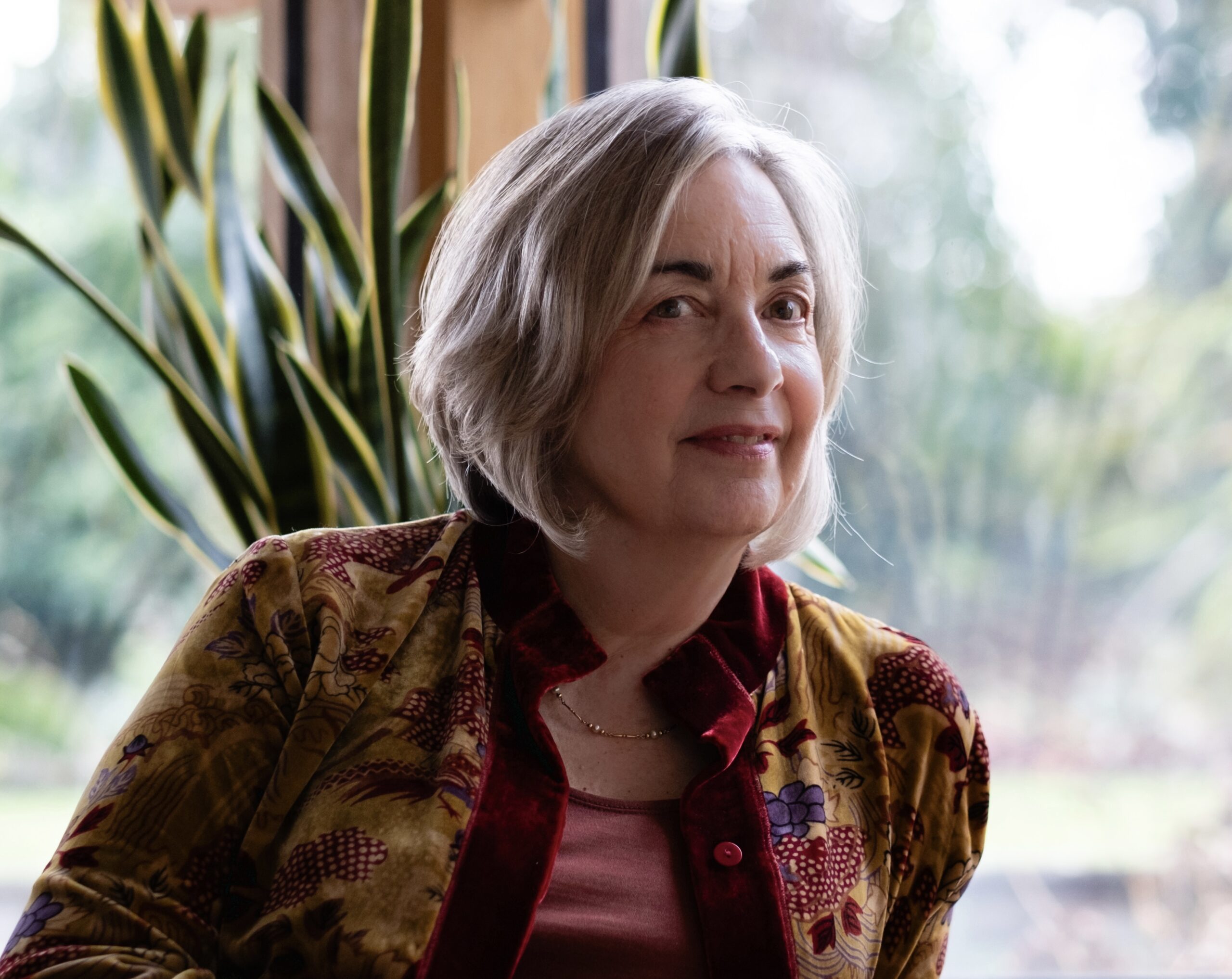ONLINE COURSE
Contemporary menstrual studies
Year Two
An interdisciplinary Master’s level course with Dr Lara Owen
Year Two is open to people who have already completed Year One.
The course is designed to deepen your knowledge and understanding of specific issues.
Gain acknowledgment for your study through our certification process.
Year Two was first taught in 2025 and will next be offered in 2027. Please email Grace with any queries.

What the course offers
An overview
Year Two builds on the detailed knowledge of the social, political and economic contexts informing menstrual experience taught in Year One.
The second year applies the critical thinking and research skills developed in the first year to look at specific areas of menstrual experience in depth.
As in Year One, there are ten modules taught over two semesters. Each module is explored through interdisciplinary academic research along with analysis of popular culture and politics.
At the end of the course a certificate is awarded on the basis of attendance, participation, and a main assignment that involves collaborative research and presentation with fellow students on a specific topic.

what you will study
course modules in BRIEF
Each lecture provides an overview of current knowledge and activity in the specific topic.
The first semester focuses on menstrual health issues.
The second semester covers the life stages of menarche and menopause; new knowledge about the impact of trauma on the menstrual cycle; and new developments regarding the workplace and other public dimensions of menstruation and menopause.
Semester One
01. Introduction to Contemporary Menstrual Studies Year Two
An overview of the current state of research, key new publications, trends in social media and popular culture, and contemporary legal, political, and academic developments.
02. Dysmenorrhea
How menstrual pain is conceptualised, experienced, diagnosed, and treated in different parts of the world. What we know and don’t know about menstrual pain, differential diagnosis, and treatments (including new research into cannabinoids, stress management, and talk therapies). Pain, altered states and spiritual practice.
03. Endometriosis and adenomyosis
The current state of research into endometriosis and adenomyosis. Historic and current theories and methods regarding causes and remedies. What do we know about endometriosis from anecdotal reports that has not yet been researched? What are the barriers to treatment? Endometriosis has a highly visible lobby these days. How effective has it been so far?
04. PMS, PMDD, and PCOS
Pre-menstrual syndrome and its sister, pre-menstrual dysphoric disorder, present various conundrums and uncertainties. Polycystic ovary disorder is a complex disorder now linked to gender dysphoria and neurodiversity. Diverse mental states associated with menstrual symptoms and their relationship to psychological and spiritual development.
05. Menorrhagia and fibroids
Heavy menstrual bleeding (HMB) and abnormal menstrual bleeding (AMB): causes, treatments, and lived experience. New understanding of menstrual blood and the physiology of the uterus including fibroids and their treatment.
Semester Two
06. Trauma and the menstrual cycle
Recent research on trauma and the menstrual cycle.
07. Menarche
The onset of menstruation. The module looks at the anthropology of menarche; current knowledge; regional/ethnic variations; and specific areas of concern. Menstruation in adolesence and medical treatment.
08. Menopause
Facts on menopause; risk factors for early and/or highly symptomatic menopause; cultural constructions of menopause; history of Hormone Replacement Therapy; the role of celebrity influencers; complexities of neoliberal feminism and capitalism; expectations and burdens in women’s lives during and post-menopause.
09. Menstruation and menopause in public contexts
The creation of the BSI and ISO standards for menstruation and menopause in the workplace and other recent developments. How policies are created, how this can be influenced, the role of educated menstrual professionals moving forward. Miscellaneous interesting research and social/political developments in the past few years not yet covered in the course.
10. Integration and summing up
Miscellaneous developments and matters not covered so far. Significant books and papers published during the year and not otherwise mentioned. Discussion about moving forward collectively and participant plans for future work.
How it works
Course design

STRUCTURE
The course is structured like a university course and in the same way as Year One. There are two semesters of 12 weeks each, with a two week-long breaks in each (situated around significant national and religious holidays), and a three month gap between the two semesters.
During term-time, there is a combination of lectures, seminars, videos and readings for each module, with content made available as PDFs and video recordings, and one live group class each week, which may be offered at two different times depending on how many people sign up and where they are living.
TIME COMMITMENT
The time commitment for online attendance is an hour a week, for 20 weeks in total. On top of that, you need to plan time for several hours of reading per week for each topic, for watching pre-recorded lectures, and for short assignments such as watching a video, writing in your journal on a specific topic, or preparing a short presentation for the class.
To allow you to catch up with reading and to focus on your independent work, the semester breaks and the three month space in between the two semesters form a pause in the taught new information. This timing is also important in helping you to integrate the course material.
SUBSCRIBE TO LARA'S NEWSLETTER

